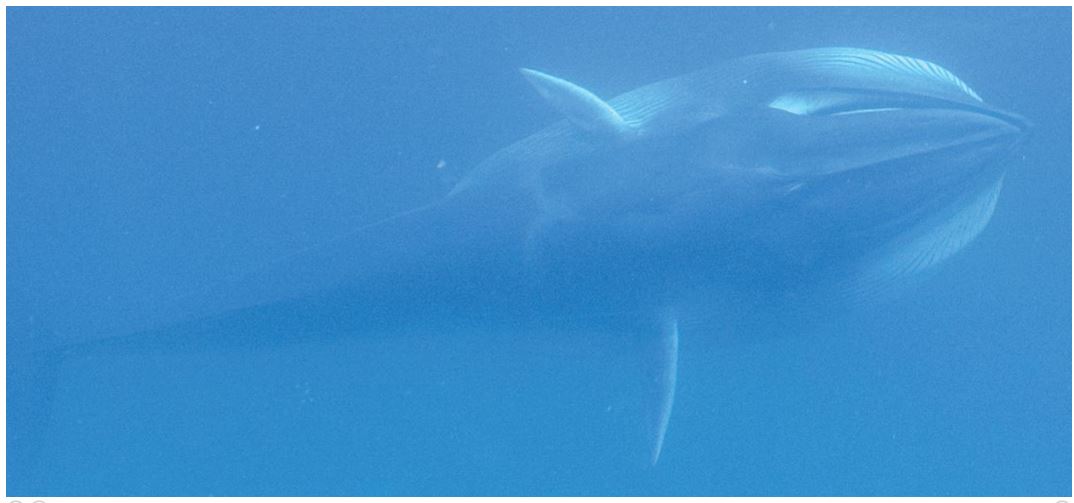|
In exciting news, a recent study has published the first ever behavioral and ecological observations of Omura's Whales, expanding scientific knowledge of these rare whales dramatically.
The Omura's Whale (Balaenoptera omurai) was first described in the 1970s based on samples collected by Japanese whaling vessels and a few strandings--but were classified as "pygmy Bryde's Whales" and weren't recognized as a separate species until 2003. Up until now, there were no confirmed field observations of these animals, and very little was known about their behavior and ecology. Recent data collected near Madagascar by scientists from the Wildlife Conservation Society suggests that Omura's Whales are plankton feeding baleen whales, and that they feed and reproduce in the same habitat, unlike many other baleen whales which are known for their long range migrations between feeding and nursery areas. Omura's Whales are related to Bryde's Whales and look similar enough that genetic testing was used to confirm identification of this population, although the authors have gathered data which will make future field observations easier. Based on genetic analysis, the population in Madagascar is believed to be fairly small and isolated. Omura's Whales are considered a "small" tropical whale, with observed specimens all under 40 feet, and studies of diet suggest that they rely on filter feeding for zooplankton (and, from earlier data, small fish and crustaceans). While they are rarely found in tightly knit groups (within several body lengths of each other), when one adult was found, more were often within a few hundred meter range. This longer range association and communication means that studying social groups may be more difficult than with other baleen whales that tend to spend time closer together. It's incredible that there are still animals this size that we know so little about, and these findings are an exciting step in learning more about non-migratory tropical baleen whales. Unfortunately, as the authors point out, this population is threatened by oil and gas development off Northwestern Madagascar. The full paper is available to read for free online here.
0 Comments
Leave a Reply. |
Field Notes
Archives
July 2021
Categories |
|
Partner with us! We are always looking for new schools, scientists, and non-profit organizations to partner with. Please contact us here to start a conversation.
Hear from us! Sign up for our newsletter to hear about what is happening at Field School as well as upcoming offers and specials. |


 RSS Feed
RSS Feed